|
Grief eventually touches everyone’s life. Maybe you have suffered a recent loss that is immensely fresh and painful. Perhaps you are not currently in the midst of waves of panic stricken grief, but someone you know is. Or maybe you have past losses that have been pushed aside, swept under the rug so to speak. Well, this article and the resources listed below are for you.
No Apologies Necessary Grief and the emotions associated with it do not warrant an apology. So, stop apologizing. Grief has no expiration date and is individual for everyone. No two people will experience grief in the same way, so stop comparing. When people ask what they can do for you, give them a job. Often those on the outside of your grief will want to do something to help, let them. Food is the most common way others want to help, and it definitely serves a purpose. Other helpful suggestions might be mowing the lawn/snow removal, supplying pet food/supplies, housekeeping, laundry, or help finishing a large project that is now postponed due to the death. Disposing of wilting flower arrangements left over from funeral services is another painful task that can be delegated out. Sometimes just coffee and talk time is what your lonely heart needs most. Remember, you’re a changed person now, you’ll grieve the loss of your loved one as well as the person you used to be. Grief is exhausting, you don’t need to apologize for being tired. Remembering Your Loved One Carrying on the legacy of the person you love can be exhausting too, but establishing meaningful traditions can promote positive coping and aid in healing. Consider lighting a candle at holidays to honor the deceased. Having a memorial table at a wedding or graduation to pay homage. Saying the deceased’s name and not making it “off limits” in your home, and with family and friends. Decorate graves as the season changes. Do acts of kindness to celebrate your loved ones birthday and honor their death anniversary, this puts purpose and action to your emotions. Share memories frequently, such as when eating a favorite meal, visiting a favorite spot, or enjoying a favorite activity of the deceased. It can be healthy to imagine your departed loved one being proud when a milestone is accomplished, or joking about a funny scenario. Explaining Death To Children Often we want to shield children from the pain of death and loss. Don’t. Usually a child’s first experience with death is with a pet or elderly relative. When children grow up knowing grief is part of life, they may display a heightened level of compassion and increased comfort with emotions. It’s important to only give kids the information they are asking for, don’t try and push feelings or sadness on them. Phrases that directly explain what has happened, like “their body stopped working” seem to be most effective. Be truthful and to the point. Avoid associating death with sleep, that is what nightmares are made of. Literally. Sometimes kids display magical thinking, where they blame themselves for the death. For example: “Grandma died because I wasn’t a good boy.” Kids may ask about when they will die or when other people in their life may die. This presents an opportunity to discuss common causes of death: illness, injury, and age. Discuss how every living thing has a lifetime and that the child is not responsible for the death. Coloring pictures, talking, making cards, and planting flowers can be good coping mechanisms for children to use. If they tend to be avoidant or frequently distracted, that is completely normal, just give them space to process the loss. Moving Forward? Or Just Marching In Place? It might feel like the calendar is moving on without you as you're figuring out your “new normal.” Or, you might be watching a friend or family member struggling with grief to the point of anxiety, depression, and social phobias. I’m here to tell you that there is beauty amidst the pain and that there are resources available. While no one can grieve for you, a support group can provide community, mental health services can help with resulting depression, and therapy can help with reestablishing coping mechanisms and processing trauma. Other healthcare providers can assist you on your journey too by ensuring your lab work, hormones, and gut health are in balance. Here at Integrative Family Medicine, we have two mental health providers on staff: Dr Danielle Fitch (West Des Moines and Ankeny offices) and Dr Justin Janss (Sacred Health office). New patient appointments with them may be booked from our website. Unsure which provider might be the best fit for your situation? Email us: info@integrativemediowa.com Local Community Resources The Compassionate Friends, a support group for individuals who have experienced the death of a child, at any age, from any cause. Typically provides support to Parents, Grandparents, Adult Siblings (children welcome at special events), Aunts and Uncles. https://www.compassionatefriends.org/chapter/central-iowa-chapter/ Amanda The Panda, offers support groups and camps for adults and children. Some of the sessions are topical. Childcare is available upon request. Fill out an interest form so staff can assist you in finding services to best meet your needs. https://www.everystep.org/services/grief-loss/registration Hamilton’s Academy of Grief and Loss, Hamilton’s Funeral Home offers many services to children and adults. Children’s classes are available for children age 3 ½ thru 6th grade. Older children can attend adult sessions. Resources for pet death are also available. https://www.hamiltonsfuneralhome.com/academy/index.aspx?t=support Grief Share, weekly support group meetings on a 13 week rotation of topics. The meetings consist of seminar, group discussion, and personal study. Offered at multiple locations (usually churches and virtual) and many different days of the week. Visit their website to find a meeting near you. https://www.griefshare.org/findagroup Are there additional resources you’ve found helpful? Please share them in the comments section. Sara Lynn, RN BSN “If you don’t invest in your health, no one else will.”
0 Comments
The average child will eat about 3 cups of sugar on Halloween, which results in almost 16 times the recommended amount of sugar they should consume (according to 2013 data collected by Coupon Follow). With this increased consumption comes an acutely weakened immune system and potential behavioral outbursts. These effects can last days to weeks. Long term problems with increased intake of sweets and highly processed carbohydrates are neurodegeneration, memory decline, parkinson’s, mood disorders, hormone disorders, along with a multitude of other health concerns.
If Halloween is truly a “treat” night in your house, the likelihood of this indulgent evening affecting the systems mentioned above for an extended period of time is minimal. Now, if there is a year round treat bowl sitting out that regularly needs refilled, it may be a good time to take note of how that candy and processed sugar are impacting your health. Here are a few easy tips for lessening these sugar demons as we head into what is hands down the most indulgent time of the year:
Most importantly, enjoy beggars night and this beautiful season we are in. Encourage the focus in the coming months to be on memories and togetherness instead of material things and favorite dishes. Allowing treats, by simply keeping them as treats will make every holiday that much sweeter. It's that time of year again—the time when we all start to feel like we're always sick. Or we feel like our kids are always sick. Or someone is always sick because it passes through the entire house and ultimately, someone else gets sick again and then passes that around.
Upper respiratory symptoms are a broad category, and they can be caused by anything from allergies to a virus or a bacteria. In little ones, commonly babies, preschool, or elementary school age, respiratory illness can escalate quickly and cause severe distress. Respiratory illness is a serious concern in young children and often times, early intervention is what decreases the progression of the symptom to a more serious problem. Read on to understand the differences in two common respiratory illness in children to determine: Is it croup or is it the whoop?  As Fall winds down, do you find yourself clinging to the last bits of nice weather? Why not round out these beautiful evenings with the tackle-box instead of the X-Box. Unplug and reconnect. Grab some good company, bait, rod & reel, and hit the local fishing hole. Fishing helps children refine motor skills with casting, reeling, and baiting a hook. Fishing is also a highly sensory experience; from slimy fish, to tension on the line, to a submerged bobber, and listening to bullfrogs and waterfowl. Tangles in fishing line are opportunities to problem solve, practice patience, and learn when to ask for help. Conversations naturally flourish in this type of environment, even with the quietest of children. From the first bite, they’ll be hooked. Not sure how to get started? I recommend starting at a bait shop. They’re the local experts. You’ll get set up with a pole, tackle, bait, and advice. Fishing is affordable fun. Children 15 and younger fish free in Iowa, residents 16 and older can purchase a yearly license for $22 at over 700 retailers. The Jester Park Nature Center is also a great resource for central Iowans, they loan out poles for a refundable deposit and the center is within walking distance of a pond loaded with hungry panfish. Bait is usually under $5 and simple lures are only a few bucks for a multi-pack. This Summer we’ve been experimenting with catching fish with hotdogs. For $2 we’ve gotten enough “hotdog bait” for 3 fishing outings. Simply cut them up ahead of time into small coins or half coins, microwave for a minute or two to toughen them up, and you’re ready to go. Remember to take pictures of the lunkers you reel in. Even if you don’t catch any fish, enjoy the opportunity to soak in nature, unplug from technology with your loved ones, enjoy a delicious picnic, and make up a few fish tales about the one that got away. For more information on borrowing poles from Jester Park Nature Center, visit their website. https://www.polkcountyiowa.gov/conservation/education/free-resources/ Sara Lynn, RN, BSN “If you don’t invest in your health, no one else will.” Attachment to certain foods can be very difficult to overcome. A lot of people have fallen into bad habits with food where they don’t even think about what they are eating because it has become so routine that it is no longer at the forefront of their minds. This is how we operate with a lot of things (like driving a car, playing an instrument, etc) – we don’t have to think about how to do something or what we are doing because it has become such a common thing for us to do that our brain doesn’t need to think about it anymore. It just does it almost automatically. This is called the cognitive or association power of the material side of our intellects.
These are the types of habits that we must change. Bad habit is called vice whereas good habit is called virtue. We are weak as human beings because of our passions (or emotions) getting the best of us. Emotion is a very good thing and is a part of us. But it must be relegated to its proper purpose. We have to let our reasonable side be the part of us that makes decisions. We must avoid making decisions because of how we might feel at a particular moment. Feelings can change on a dime. But if one thinks out a particular problem and thinks about a good solution, that solution often does not need correction. This is because of your mind’s capability to reason out what is true. For instance, if I leave my computer behind at home and thus cannot perform some of my job duties, and I live 30 minutes away, I need to think of a careful solution to the problem. I grow irritated and frustrated with myself with a moment such as this and my first instinct is to race back home and grab the computer, cursing at myself the whole way home. However I hit the pause button on that option because it actually doesn’t make sense given the circumstances (I need to see my patient in 5 minutes when his or her appointment starts). My patient is waiting for me so I have a duty to stay and make the situation work. Instead, I will need to either find another solution or find a time to go back home when time allows. Because of taking an extra five minutes out of my day to plan around this problem, I was able to find an alternative more reasonable solution than trying to race back home (and risk causing a wreck and missing at least one patient appointment) - all to get that computer that I really didn’t NEED at that time. I instead chose to suffer the loss of my computer for the day and use an alternative one (that has not been tailored to my work flow) as that allowed me to see my first patient without delay or rescheduling. Ultimately, I knew that by not getting my computer, I would be suffering the inefficiency of a slower work flow and thereby staying later at work and missing out on family time. But it was my mistake, and so it was reasonable of me to fight that emotional instinct that I wanted to follow initially. The same thinking process can be applied to bad habits of choosing unhealthy food. In this instance, one must choose to accept that one is going to suffer the lack of the pleasure one gets from eating very tasty but unhealthy food. The human brain sees that as an evil (because of attachment to the pleasing effect it gives us) and we naturally try to avoid evils. But the mind knows that this is really not an evil and is actually good so it overrides the emotional side of us and wills what is truly good. One will then suffer the emotional consequences meaning one must suffer the effects of not feeling those pleasing effects for a short time (the brain doesn’t secrete as much dopamine). However after one eats a healthy meal, he will then realize that this was actually good for him even from an emotional side because he actually feels better too after finishing it (no bloating, fatigue, feeling gross, etc). By choosing the right path, one has accepted suffering and pain into his life and thereby strengthens his will and tempers his emotional attachment. With continued practice, the emotions/passions become detached from those bad foods. The pace of this differs amongst people depending on where they are at mentally/psychologically. This is ultimately the step one must make when trying to lose weight and maintain a healthy balanced body. One must accept pain and suffering in one’s life. Suffering will find you either way as if you do eat unhealthy or do not exercise enough, then you will likely suffer the consequences in the long run with associated diseases and disabilities. Suffer the lack of pleasure now for the good of your body later. It doesn’t mean you can never have snacks and such – it just means it needs to be tightly regulated for your health. I always encourage my patients to continue to think two steps ahead. Where are you going to be at in five years with this weight gain you have had over the last year? Something has to change, and the time for that change is now. By accepting that pain and suffering is just a part of this life, and choosing to bear it well, you will go far with getting your passions/emotions under control and thereby making it much easier to lead a healthy lifestyle. Remember too that this process is not simple. One may accept the idea that he will undergo a lot of suffering to overcome his attachments to certain foods. But this does not mean that he will be perfect in his quest. In fact, there is a very high chance that he will “fail” quite often. This is OK. You should never fret over such things because, as human beings, we are weak. It is ok to accept that. It doesn’t mean that you shouldn’t or can’t try to grow stronger though. But by accepting that you are a work in progress, you can accept minor failures in the process and move on to grow from them. I also encourage everyone to have someone there for them to help them with this process whether it be a family member, friend, provider, health coach, etc. The journey is easier when you have a helping hand. We will continue to delve more into the specifics of dieting and how one can hold one’s self accountable moving forward in the next blog. Fall Dual Purpose Decorating… On A Dime“If you don’t invest in your health, no one else will.” If you’ve been following me for any amount of time, you’ve read that quote. It’s true though! No one is going to wave a magic wand and make you healthy. Health is something we invest in. We invest our time in exercise, sleep, and scheduling healthy activities. We invest our energy into mindfulness and centering exercises. We also invest our financial resources- which sometimes feels like the biggest sacrifice of all… However, with these dual purpose decorating tips, you won’t have to exchange a beautifully decorated home for the sake of your healthy lifestyle.
Go Grocery Shopping Find items that double as both food and decor. A lovely fall squash or some pie pumpkins are a great addition to a fireplace mantle, table centerpiece, or an entryway. Then, around Thanksgiving, you can make a homemade pumpkin pie or pumpkin bars with your pumpkin. Don’t forget to roast the seeds, they’re high in fiber, vitamins, and minerals. Your squash can be seasoned and roasted or pureed into a creamy soup, yum. Decorating never tasted so good. Go On A Nature Walk Here’s another dual purpose decorating tip. Use a nature walk to get your steps in for the day and find free Fall accents. Pinecones, cattails, and ornamental grasses work well. (beware of allergens). Who needs the gym anyways? Clean Out The Basement… Or Someone Else's Shopping your own house seems too simple doesn’t it, but sometimes we forget what we actually have tucked away in the back of the cupboard or down in the basement. I especially like pairing antique Mason jars, art work, and antique photos together for a Fall inspired look. Sometimes, I also “shop” at my parent's house. Shhh! I can almost smell the apple cider and pumpkin spice lattes now, just thinking of fall decorations, the weather changing, and leaves turning color. This year, with the help of these tips, you’ll be able to enjoy a beautifully decorated home on a dime. So, save your money to invest in your health! Keep taking your supplements, eating a healthy diet, and receiving necessary healthcare services. Fortunately, Integrative Family Medicine has transparent pricing, listed right on our website, so you’ll always know what you’re expected to pay. Happy Fall! Sara Lynn, RN BSN “If you don’t invest in your health, no one else will.” Fall Themed Sensory IdeasWell it’s officially Fall, and as we say goodbye to Summer and look ahead to colder days, here are a few fall themed sensory play activities to start the season off right. Get Outside & Play in the Leaves Just because the temps are cooler doesn't mean the outside play has to end. I find the Fall time to be the perfect time to get out and play. Take a nature walk, let your child lead the way, don’t worry about getting lost, just breathe in the fresh crisp air and embrace the calmness that this time of year brings. The sights, sounds, and smells all make for an excellent sensory experience. Try planting Fall bulbs with your child, tulips or daffodils are a great choice. Talk about each step and what the bulbs will eventually grow into. Or my personal favorite, rake up a big (BIG) pile of leaves and jump right in! Bake a Delicious Fall Treat Cooking in the kitchen with your child is not only a great way to provide a sensory experience, but it is a great way to build your bond and create a long lasting memory. Here’s a recipe for my favorite (healthy-ish) fall treat to make with my little one. Combine 2.5 cups rolled or quick oats, 1 cup pure pumpkin puree, 3 Tbsp maple syrup, 1 tsp pumpkin pie spice, and ½ cup chocolate chips. Then form into cookie shapes, place on a parchment lined baking sheet, and bake for 10 minutes at 350 degrees. All that’s left is to enjoy. Apple Stamping with Taste Safe Paint A classic and one of my favorite sensory activities to do in the fall with my little one, is apple stamping. Simply cut the apple in half, remove the seeds, dip in paint and stamp away. Elevate this by removing the apple’s skin and using cookie cutters to cut out fun shapes. Then create taste safe paint by mixing ½ cup flour, 1 cup hot water (to kill any possible bacteria in the flour), and food coloring of choice. By removing the skin of the apple and using a taste safe paint you have now made this a safe activity for crawling babies as well as older children. However you choose to embrace the cooler weather is up to you. I hope these tips inspire you to create some fun this season, and make amazing memories with your little ones! Extend the fun by attending one of our Free Sensory Development Classes offered on Friday’s at our Ankeny location. Reserve your spot at www.integrativemediowa.com and find out what makes playing with a purpose so great! A Holistic Approach to Dealing with Winter BluesThis summer flew by! Kids are back to school, Labor Day Weekend has come and gone, and the hours of sunlight are shortening by the day. Anyone else feel a sense of urgency to soak up the last warm sunny days? As we look ahead on our calendars, let’s plan ahead for winter! Many people suffer from the winter blues (or Seasonal Affective Disorder) and can become fatigued, depressed, and unmotivated in the winter months. As with any medical condition, it is best to prevent it from becoming severe, and begin treatment early. Treatments include: Daily walks outside—even on cloudy days Exercise that gets your heart rate up Light therapy Good sleep hygiene Antidepressants (if indicated) Vitamin Supplementation I generally recommend making sure that your vitamin D level is in a therapeutic range—50-80 seems to be best. Living in a northern climate, it is very common to have a low or inadequate vitamin D level. This vitamin is not only important for mood, but is vital to the immune system, hormones, metabolism, and overall energy and feeling of wellness. B12 is another vitamin that can boost energy and mood. Nutritional deficiencies such as vitamin D, B12 and iron need to be well managed as they are big contributors to mood, energy, and metabolism. Good sleep is vital. Limiting blue light before bed is something that we all should be doing! Put down the cell phone, shut off the TV and do a puzzle, read, or listen to music or your favorite podcast! For indoor lights the rest of the day, it should be bright until the late evening when you are close to being ready to go to bed. Have trouble waking up and crawling out of bed in the winter? One thing that I personally find VERY helpful is an alarm clock that simulates a sunrise, and having the lights on a timer and dimmer so that they all slowly become brighter and gently bring me out of my sleep cycle. Try to get up around the same time every day, and go to bed the same time every night to help your body maintain its natural rhythm. Addressing nutritional deficiencies, working on good sleep habits, making sure that there is lots of activity and light during the day can all help alleviate the winter blues. Medication can also be very helpful if the lifestyle changes are not effective enough, but studies show that light therapy etc., can offer around 65% improvement in depressive symptoms. This combined with medication can allow an individual to feel great all year round! If you are interested in vitamin D injections, B12 injections, health coaching, or our other “alternative” therapies, hop onto our website and book that appointment today! If you would like to learn more about Alpha Stim or make an appointment to see one of our providers, please schedule online or give us a call. —----Sarah Lee, ARNP Fall, Leaves, Fall By Emily Brontë Fall, leaves, fall; die, flowers, away; Lengthen night and shorten day; Every leaf speaks bliss to me Fluttering from the autumn tree. I shall smile when wreaths of snow Blossom where the rose should grow; I shall sing when night’s decay Ushers in a drearier day. Easy Peasy Pesto Here’s a great easy peasy recipe to help use up end of the season herbs. It just so happens that my herbs are always at their best right before the first frost of the season. Darn. So, I like to whip up a few batches of this recipe when I can, and throw the extras in the freezer to enjoy all winter long. I tend to make this recipe with basil being the headliner, but when I’m drowning in fresh cilantro, I use that too. It’s absolutely fabulous and oh so easy! It only takes a handful of ingredients, a blender, and a rubber spatula. You’re 5 minutes away from healthy (antioxidant rich), creamy pesto made to order, plus it’s vegan and dairy free. Ingredients:
⅔ Cup Whole Plain Almonds 2 Cups Fresh Basil Leaves or Cilantro 2 Garlic Cloves ½ Cup Olive Oil 1 ½ Tablespoons Lemon Juice ¼-½ Teaspoon Salt, To Taste ¼ Teaspoon Ground Pepper Water, As Needed Directions: Place all ingredients in a blender and blend until smooth, scraping down the sides as needed. The pesto sauce can be thinned by adding additional water (about a Tablespoon at a time) or additional Olive Oil. This pesto sauce is great on pasta, spread on a BLT sandwich, topped on baked chicken, or turned into a vinaigrette dressing by adding a touch of white wine vinegar and drizzling on a salad. Let your creativity run wild with this easy peasy recipe, and don't let any of this year's herb garden go to waste. Sara Lynn, RN BSN “If you don’t invest in your health, no one else will.” Dr Justin’s Morning Routine Challenge… Can You Commit? |
Blog Info
Archives
April 2024
Categories
All
|
|
Visit our Locations
IFM | West Des Moines 475 S. 50th St., Suite 600 West Des Moines, IA, 50265 IFM | Ankeny 207 NE Delaware Ave. Suite 20 Ankeny, IA 50021 |
Office HoursMonday 9:00 - 5:00 Tuesday 10:00 - 5:00 Wednesday 9:00 - 5:00 Thursday 9:00 - 5:00 Friday by appointment. Sat & Sun Closed |
© 2022 Integrative Family Medicine of Iowa, PLLC.
All rights reserved.
All rights reserved.


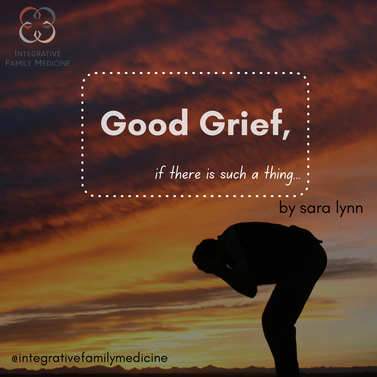
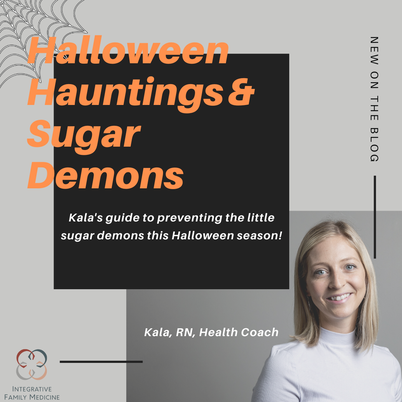
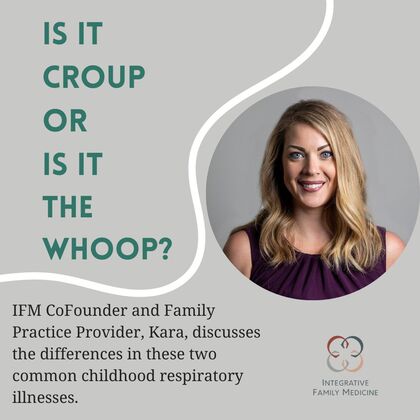
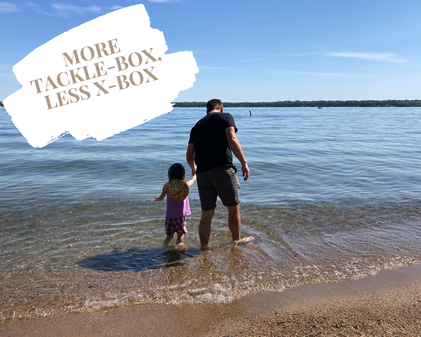


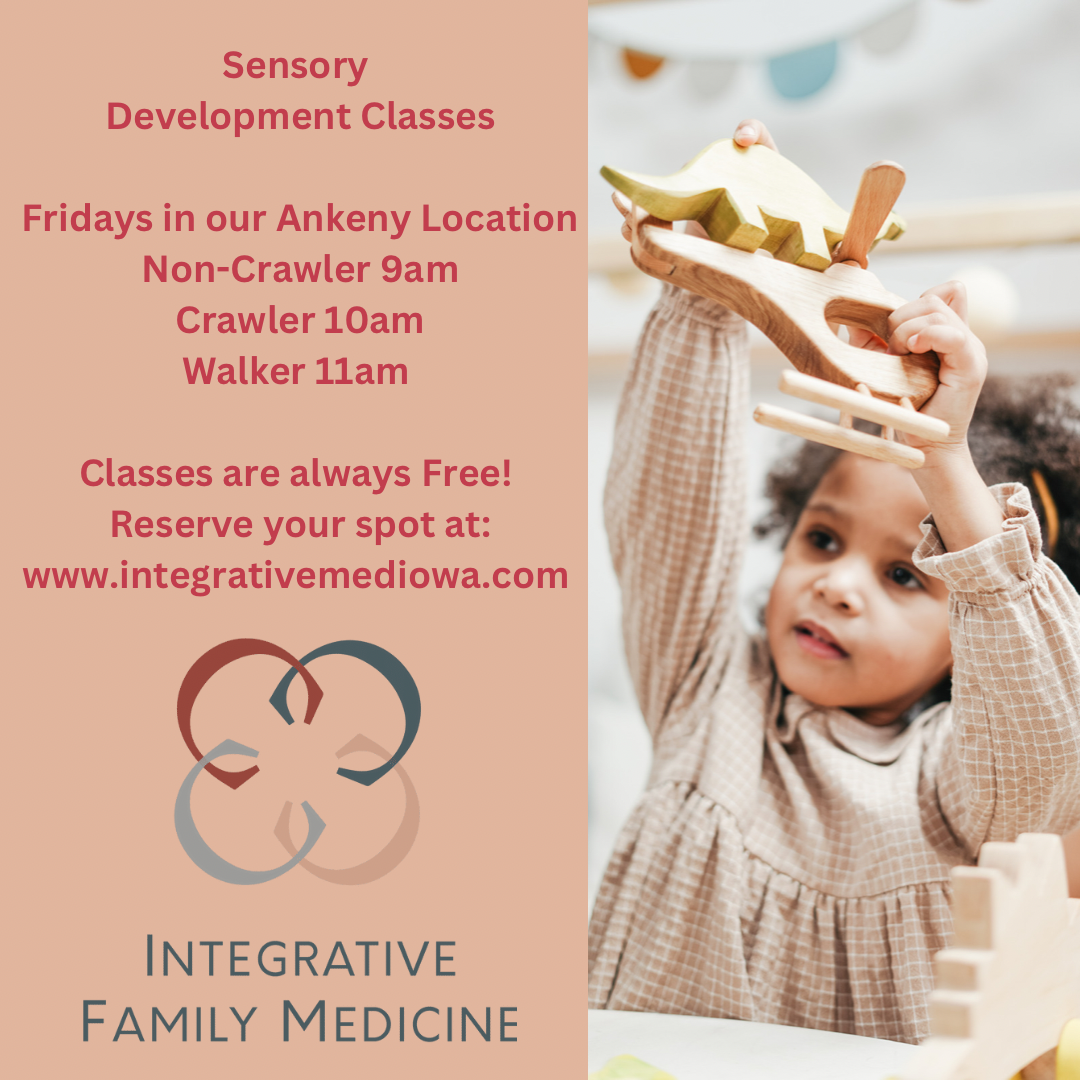
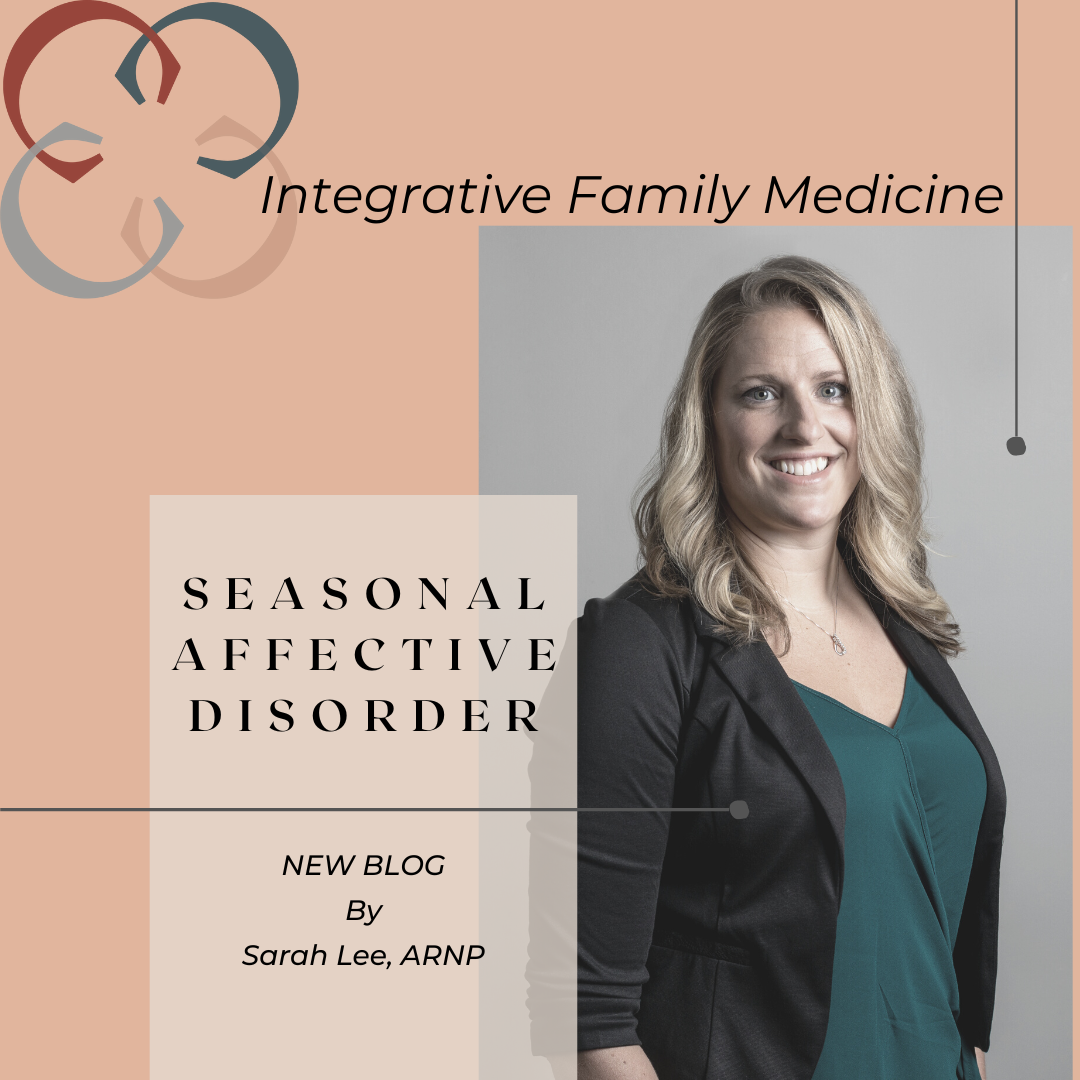
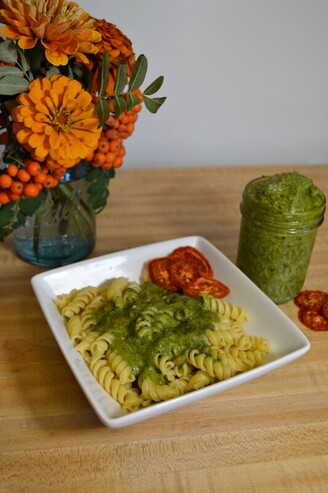
 RSS Feed
RSS Feed

